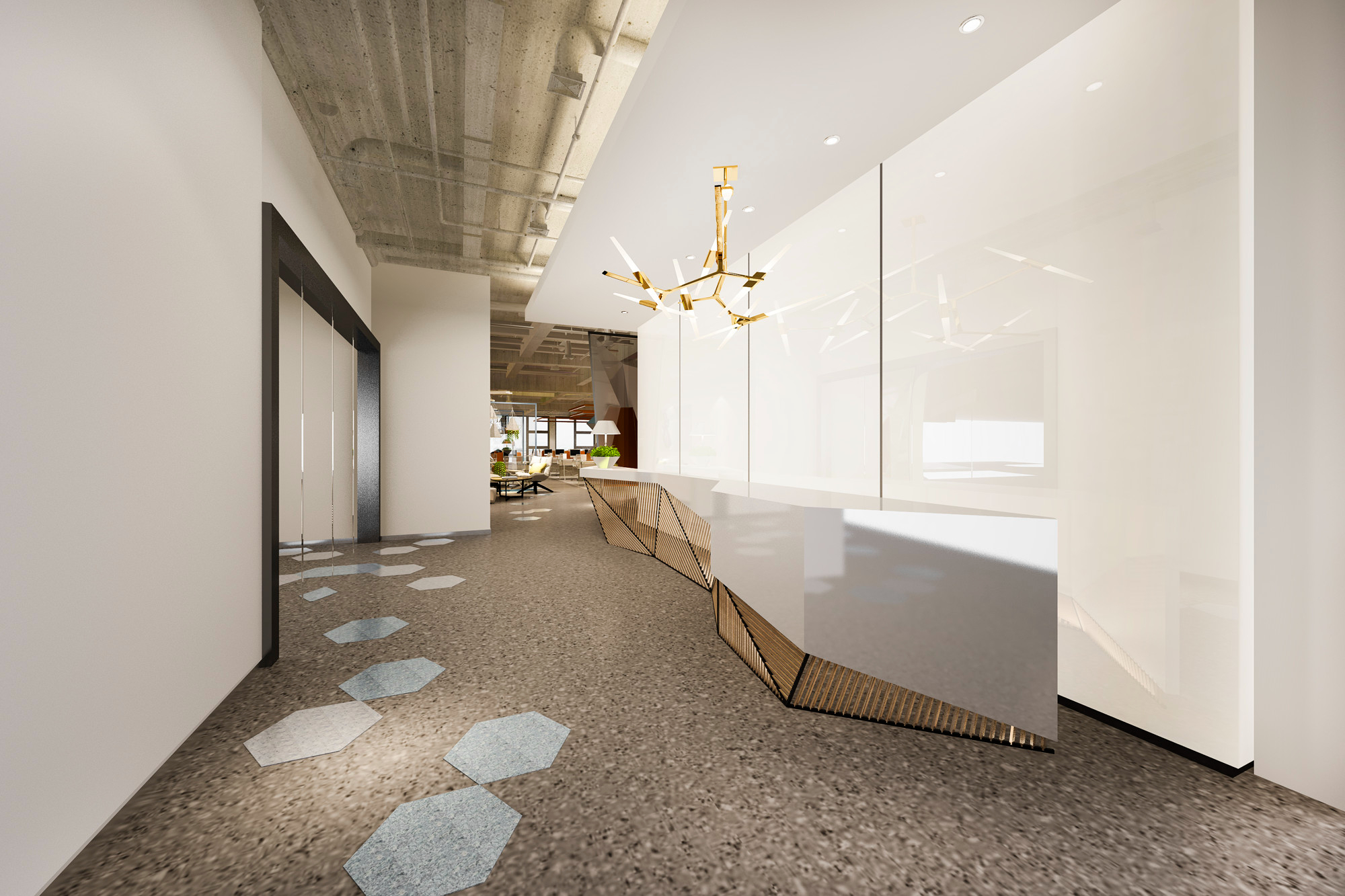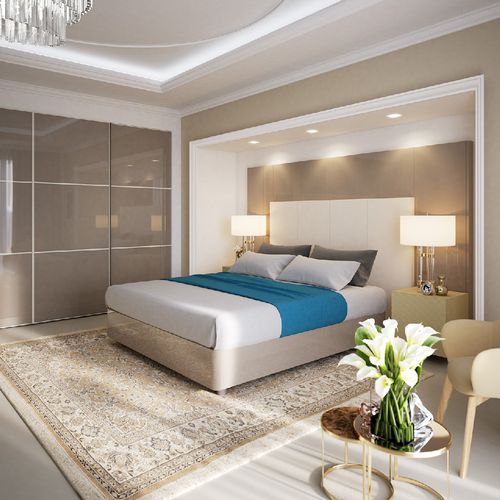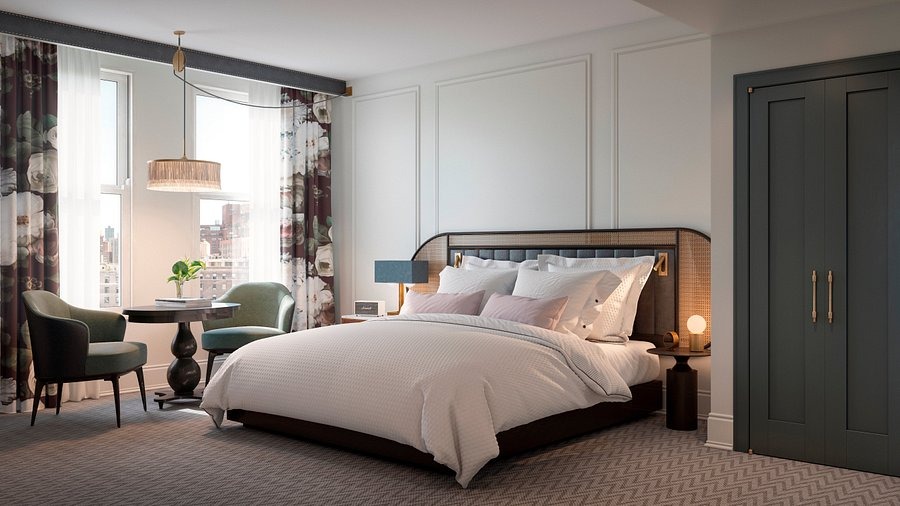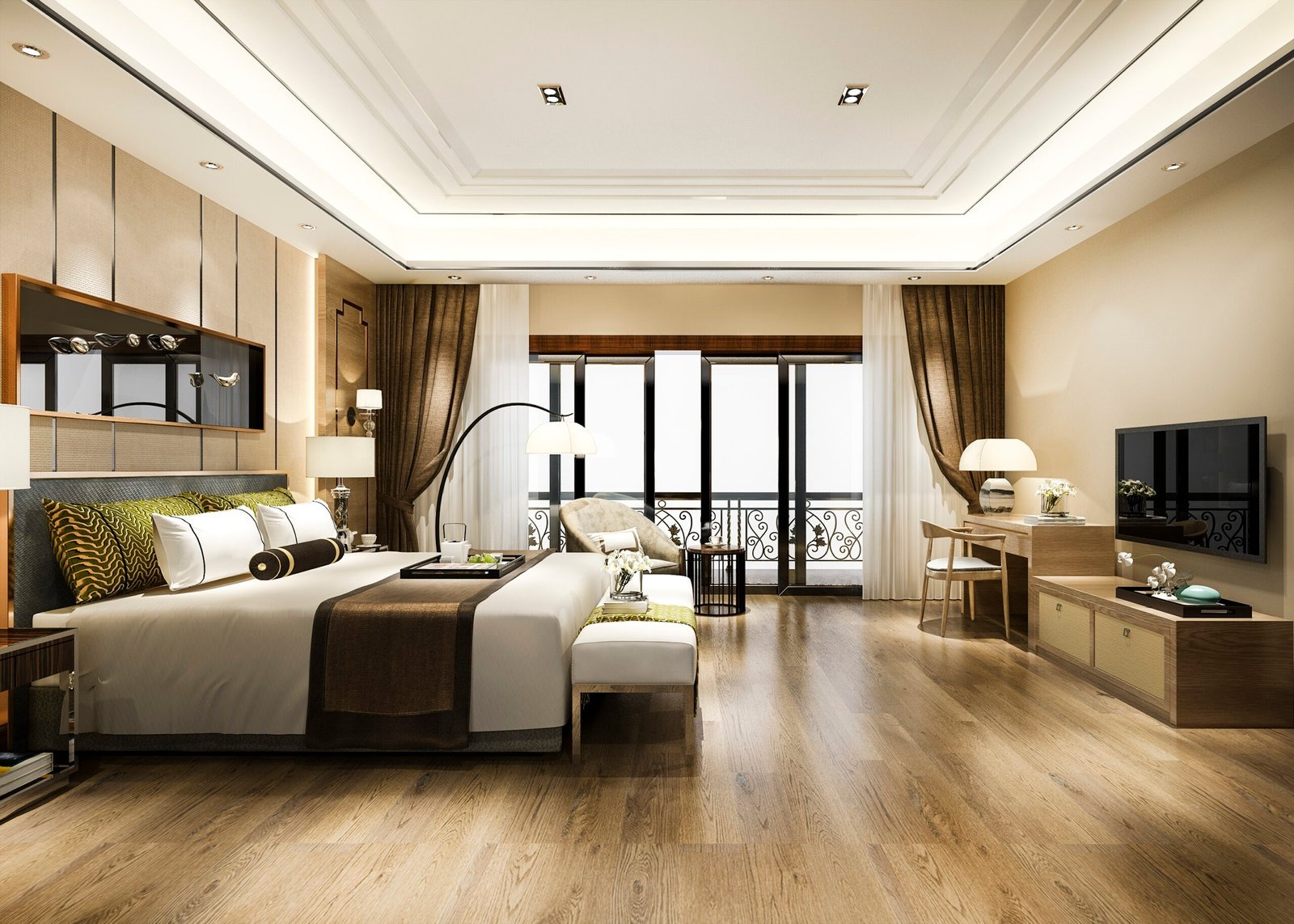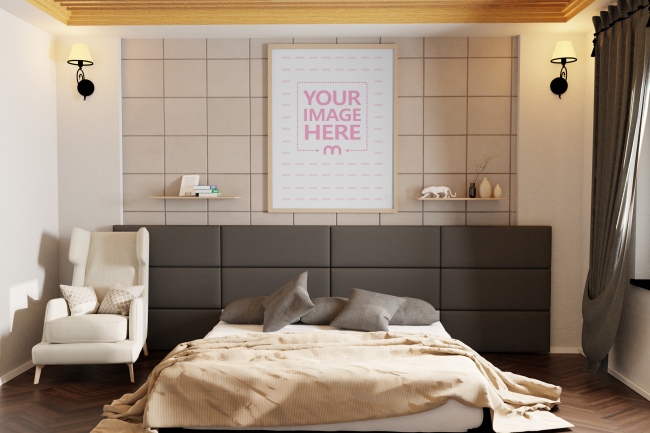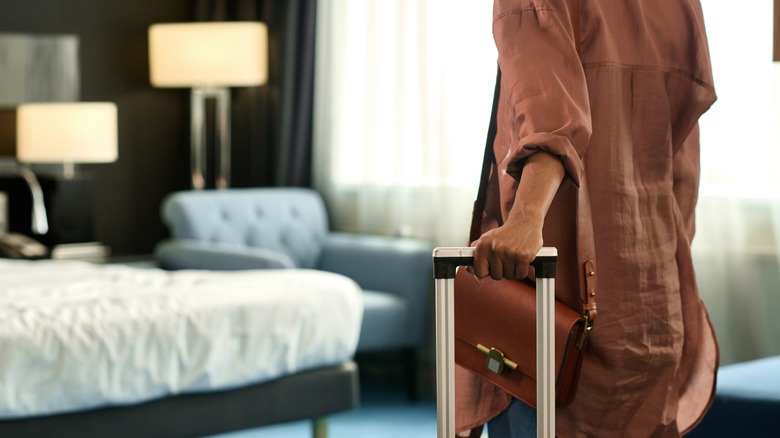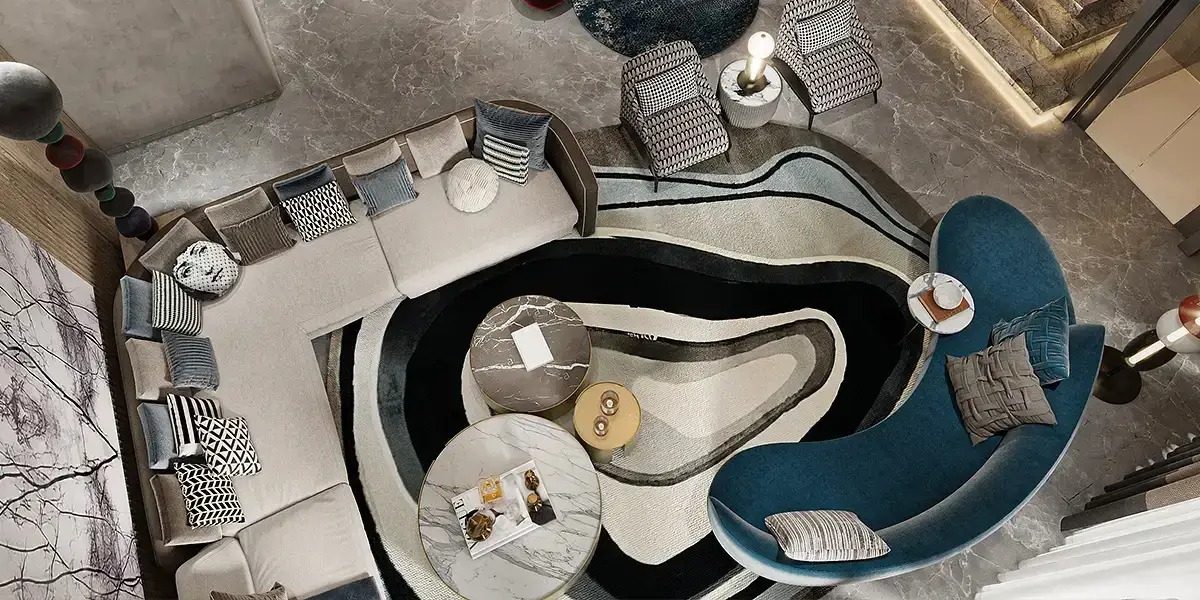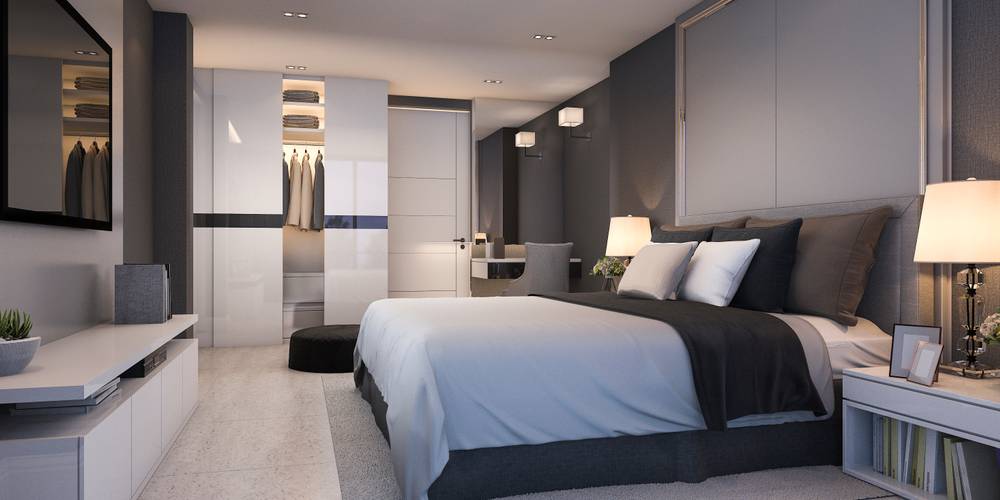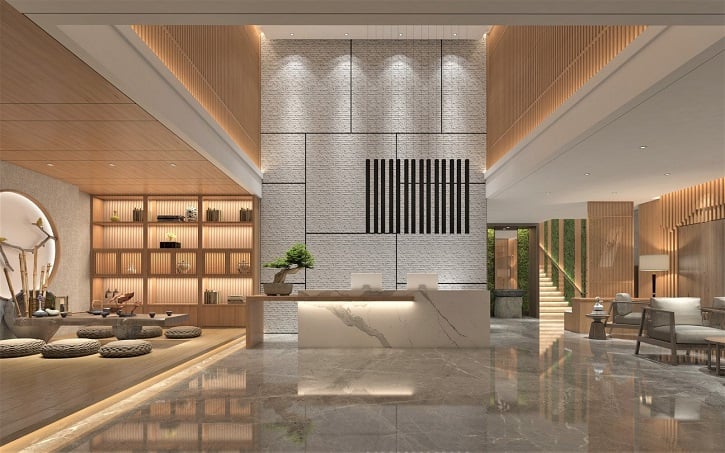Why Boutique Hotels Need a Distinctive Interior Style
Thứ 5, 09/10/2025
Administrator
78
Boutique hotels succeed because they offer something big brands often can’t , a sense of character. From design to service, every detail tells a unique story. In this article, Ngoc Hoang Anh explores why a distinctive interior style is essential for boutique hotels to express identity, attract the right guests, and deliver unforgettable experiences.
1. What Makes Boutique Hotels Unique
Boutique hotels redefine hospitality through individuality, atmosphere, and authenticity. They attract travelers who value meaning, intimacy, and artistry instead of standardized luxury. Every element, from the architecture to the furnishings, reflects a personal vision that transforms an ordinary stay into a curated experience.
1.1 Personality over Uniformity
While international hotel chains focus on repetition and consistency, boutique properties celebrate originality. Each hotel tells its own story shaped by the owner’s perspective, the location, and the local culture. This distinctive character gives guests a sense of discovery and connection that large-scale hospitality often cannot provide.
1.2 Scale that Fosters Connection
The smaller scale of boutique hotels creates intimacy. With fewer rooms and more intentional design, the guest experience becomes personal and genuine. Every space feels handcrafted and attentive, allowing guests to form an emotional bond with the environment.
1.3 Local Inspiration and Authenticity
Boutique hotels often draw inspiration from their surroundings. Regional materials, handcrafted furniture, and local artistry bring cultural depth to each property. This connection to place gives authenticity to the experience and ensures that every visit feels unique and memorable.
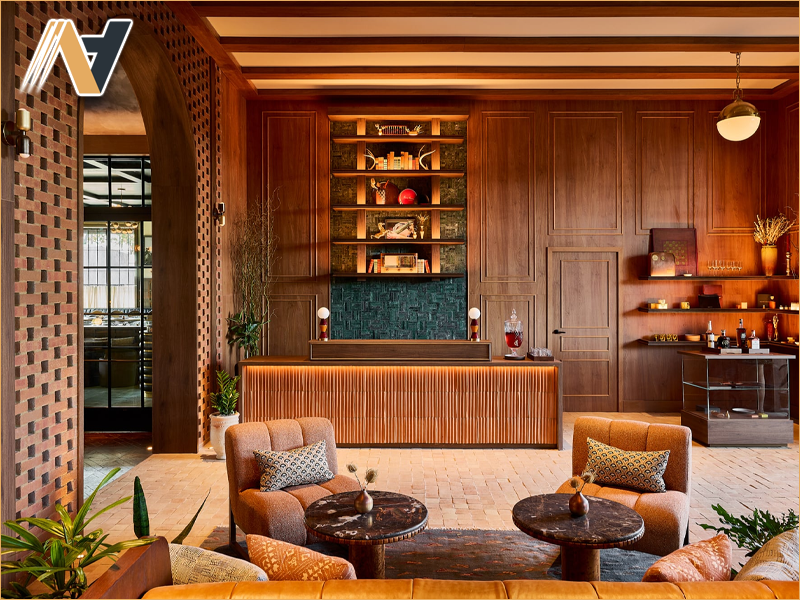
2. Design as the Core of Boutique Branding
In boutique hospitality, design defines the brand more powerfully than any logo or advertisement. It shapes how guests perceive a property from the moment they arrive. Every line, texture, and color choice reflects personality, expressing philosophy and emotion through form rather than words.
2.1 Storytelling through Design
Boutique hotels use interior design as a way to tell their story. Each space embodies a narrative inspired by the location, the building’s history, or a creative concept. Materials, lighting, and furniture work together as a visual language that communicates the hotel’s values and character. Guests understand this story instinctively through atmosphere and detail.
2.2 Balancing Cohesion and Individuality
The best boutique hotels achieve visual harmony without losing variety. Cohesion ensures that rooms and public areas share the same design language, while individuality allows each space to express its own mood. When tone, proportion, and texture are handled consistently, the overall aesthetic feels unified, yet subtle variations keep the experience dynamic and engaging.
2.3 Lasting Impression through Detail
Memorable design comes from precision and care. A handcrafted lamp, a patterned tile, or a textured fabric can become a visual signature that guests associate with the property. These details may seem small, but together they create the identity that distinguishes a boutique hotel and leaves a lasting impression long after the stay ends.
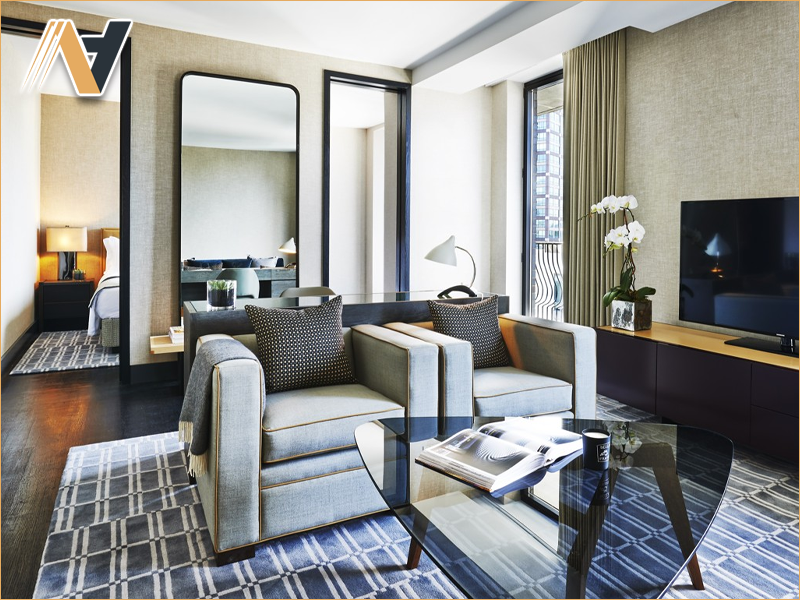
3. Creating Emotional Connection through Interiors
Luxury in boutique hospitality goes beyond aesthetics. True value lies in how a space makes guests feel. Interior design has the power to evoke emotion, set mood, and build a sense of belonging that transforms an overnight stay into a lasting memory.
3.1 The Power of Atmosphere
Every design element contributes to emotion. Lighting creates warmth, textures invite touch, and proportions influence comfort. When these components work together, the space becomes more than visual beauty; it becomes a complete sensory experience. Guests feel calm, inspired, or comforted without consciously realizing why.
3.2 The Role of Authenticity
Authentic design speaks directly to emotion. Boutique hotels often incorporate local materials, regional craftsmanship, or cultural motifs that remind guests where they are. These genuine details bring personality to the interior and form an emotional bridge between the hotel and its surroundings.
3.3 Comfort as Emotional Design
Comfort is not only physical but psychological. Soft fabrics, natural light, and thoughtful spacing help guests feel safe and relaxed. When interiors balance beauty with empathy, they create a quiet connection that encourages guests to return.
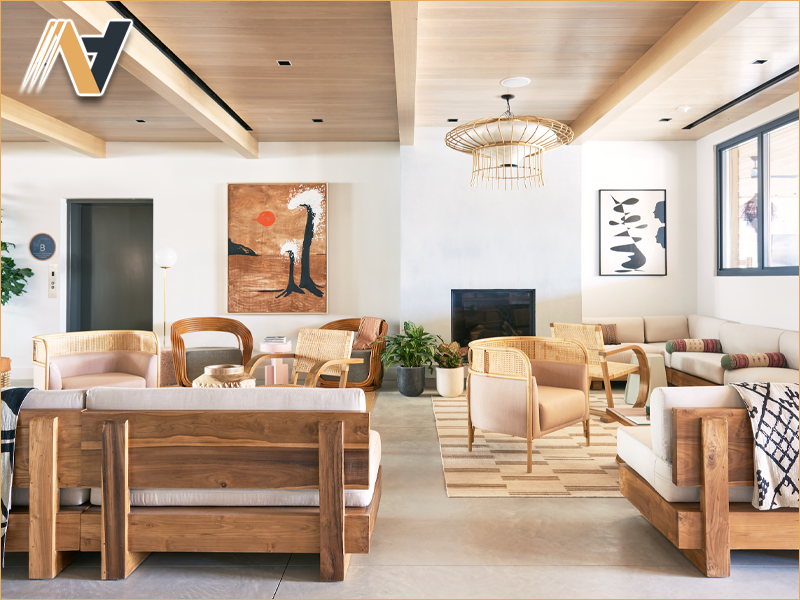
4. Custom Furniture: A Signature of Authentic Design
Custom furniture defines the personality of boutique hotels. It gives physical form to the concept of individuality, ensuring that every space feels intentional and connected to its story. Through scale, material, and craftsmanship, bespoke pieces turn design into identity and function into art.
4.1 Designed to Fit the Space
Boutique hotels often occupy buildings with unique layouts or architectural challenges. Custom furniture allows designers to work within these constraints while maintaining beauty and harmony. Each piece is measured precisely to enhance flow, balance, and usability, creating rooms that feel both natural and refined.
4.2 Craftsmanship as a Mark of Authenticity
True authenticity comes from attention to detail. Handcrafted furniture brings warmth, imperfection, and life to an interior, qualities that mass-produced items cannot achieve. When guests notice these subtle details, they sense the care and creativity behind the design — a quiet expression of luxury that feels personal rather than commercial.
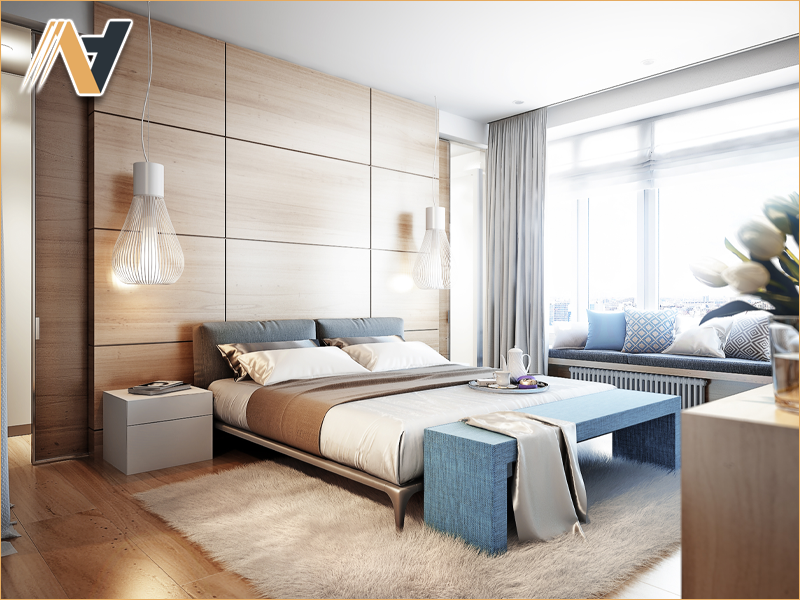
5. Balancing Aesthetics with Practicality
Beautiful design holds little value if it does not serve function. Boutique hotels succeed when visual artistry enhances comfort, efficiency, and long-term usability. The harmony between form and function is what transforms interiors from decoration into meaningful experiences.
5.1 Comfort as a Design Principle
In boutique environments, comfort is inseparable from beauty. Furniture must invite use, not just admiration. Proportions, materials, and ergonomics determine whether a space feels welcoming or distant. When design prioritizes the human experience, aesthetic appeal naturally follows.
5.2 Material Integrity and Maintenance
Every design choice must consider longevity. Natural stone, wood, metal, and quality fabrics retain elegance while standing up to frequent use. Thoughtful material selection ensures the interior remains as stunning years later as it was on opening day. Practicality is not the opposite of art; it is what allows beauty to endure.
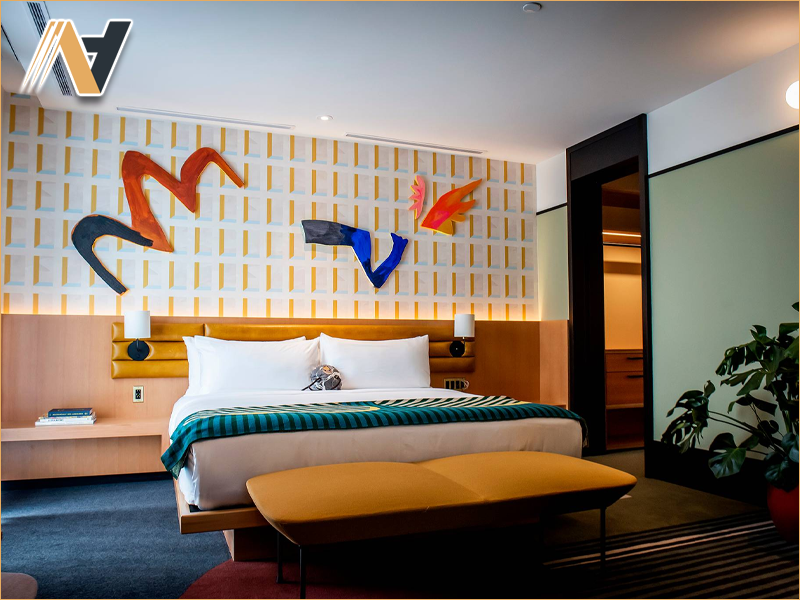
6. Sustainability and Modern Values
Sustainability has evolved from a design trend into a defining value of modern hospitality. Boutique hotels, with their smaller scale and creative freedom, are often at the forefront of this shift. Sustainable design not only reduces environmental impact but also enhances authenticity and long-term guest trust.
6.1 Responsible Sourcing and Local Craftsmanship
Sustainable interiors begin with ethical choices. Using locally sourced materials and collaborating with regional artisans minimizes transportation waste and supports community economies. These partnerships also add cultural depth, giving boutique hotels a genuine connection to place and people.
6.2 Longevity as a Measure of Sustainability
True sustainability is built on endurance. Furniture and finishes chosen for durability extend the life cycle of interiors, reducing the need for frequent replacement. When materials age gracefully, they add character rather than obsolescence, reflecting a refined understanding of time and value.
7. Conclusion
Boutique hotels thrive on individuality, authenticity, and emotional depth. Their interiors are more than decoration; they express identity, evoke comfort, and tell stories that guests remember long after their stay. Every material, proportion, and handcrafted piece contributes to this quiet dialogue between beauty and purpose.
For boutique properties seeking refined craftsmanship and tailored production for their interiors, Ngoc Hoang Anh offers professional Vietnam hotel furniture OEM solutions that combine design precision, sustainability, and enduring quality.
Contact us today for professional consultation and high-quality production support for your hotel project.
-----
NGOC HOANG ANH TRADING COMPANY LIMITED
Tax Code: 3702874413
Address: No. 288/28/10 Huynh Van Luy Street, Zone 7, Phu Loi Ward, Ho Chi Minh City, Vietnam
Warehouse: No. 1/91, Thuan Giao 02 Street, Binh Thuan 2 Residential Quarter, Thuan Giao Ward, Ho Chi Minh City, Vietnam
Phone/Whatsapp/Wechat: +84342076666
Email: info@ngochoanganh.com.vn

